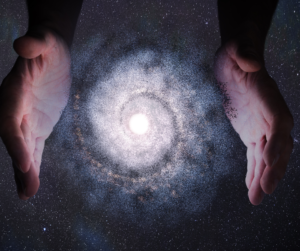 I’d appreciate your comments.
I’d appreciate your comments. 
The Law Of Causality Is A Metaphysical Principle
The law of causality is not merely a law of our universe, it’s a law of ALL reality whatsoever. It’s not a force of physics like gravity and electromagnetism or a law of nature like inertia. These only apply if there is a universe. Metaphysical principles transcend physics, which is why it’s called metaphysics.
Regarding how we know the law of causality is always true, there are three arguments I’ve employed in my public material on the Kalam argument. Dr. William Lane Craig uses these same arguments in his defenses of it. The first of the three is that to deny the premise that things come into being without a cause, by the logical law of excluded middle, you’re forced into your only other option; which is to say that things can just pop into being out of nothing. But nothing can come from nothing because nothing has no causal properties. Nothingness is the absence of non-being. It’s a term of universal negation. As Artistotle humorously put it, “Nothingness is what rocks dream about”. Indeed. Nothingness has no properties at all. If it had at least one property, it wouldn’t be nothing. It would be something. If something came into being, it either came into being from something (a cause) or nothing (no cause). And since nothing is causally impotent, not being anything at all, it (which cannot properly be called an “it”) cannot produce any effects, including The Big Bang.
The other two arguments in favor of premise 1 are empirical. If things could come into being out of nothing, we ought to see it happening a lot more often, and yet no one ever reports spontaneous ex nihilo creations such as a house materializing into being out of nothing causing a 33 car pile up. Not once has a ninja materialized in my bedroom out of nothing while I was writing a blog post or reading my Bible. We never hear of joggers getting mauled by vicious animals that poof into being out of nothing. But if things could come into being from nothing, then they should be happening with more frequency than once in the entirety of the history of the universe (i.e The Big Bang). The third argument is that this premise is constantly verified and never falsified. Whenever we see something as it’s coming into being, we see a cause producing it (e.g chefs producing food, manufacturers producing cars, dogs producing dog poop).
I suspect that it was these latter two arguments that lead you believe that the law of causality is a law of the universe like inertia or entropy, but that is not the case. It is a metaphysical principle, and there is a metaphysical, non-empirical argument that can be given in favor of believing it holds. So it just is not the case that “The Kalam attempts to apply the laws of our universe, to a ‘time’ when our Universe did not exist.”
The Cause Before Time
“Some people stumble at the idea of God’s creating the universe (or the Big Bang) because causes must be prior to their effects in time, and there is no time prior to the Big Bang. In fact, Stephen Hawking on the recent television program “Curiosity” presents this difficulty as a proof of atheism (see Question of the Week 226)! I’m inclined to say, with most philosophers, I think, that causes need not exist temporally prior to their effects. But for those who are hung up on this difficulty, relative timelessness provides a neat way out: God does exist temporally prior to causing the Big Bang—not in physical time, to be sure, but in His own time, the time in which God Himself endures.It might be thought that the kalam cosmological argument would be incompatible with God’s existing in a beginningless, non-metric time. But this is not obvious. As I have formulated them, the kalam arguments against an infinite temporal regress of events concern events of equal temporal duration. These arguments would entail that metric time must have begun to exist, since there cannot have been an actually infinite number of past years, for example. But if we erase time’s intrinsic metric, then it is meaningless to talk about the number of years prior to creation. Thus, the kalam argument would show that metric time began to exist but allow that God could exist in non-metric time prior to creation. So the doubts of those who object to the kalam argument because they do not see, for example, how a timeless being could have a temporal effect or how a being with intentions could exist timelessly or how God’s state of existing without creation could be timeless should be completely allayed, since according to the Oxford School God is in time prior to creation.”

If you have any questions about Christian theology or apologetics, send Mr. Minton an E-mail at CerebralFaith@Gmail.com. It doesn’t matter whether you’re a Christian or Non-Christian, whether your question is about doubts you’re having or about something you read in The Bible that confused you. Send your question in, whatever it may be, and Mr. Minton will respond in a blog post just like this one.
Share this:
- Share on Facebook (Opens in new window) Facebook
- Share on X (Opens in new window) X
- Print (Opens in new window) Print
- Email a link to a friend (Opens in new window) Email
- Share on Pinterest (Opens in new window) Pinterest
- Share on Reddit (Opens in new window) Reddit
- Share on LinkedIn (Opens in new window) LinkedIn
- Share on Tumblr (Opens in new window) Tumblr
Discover more from Cerebral Faith
Subscribe to get the latest posts sent to your email.




